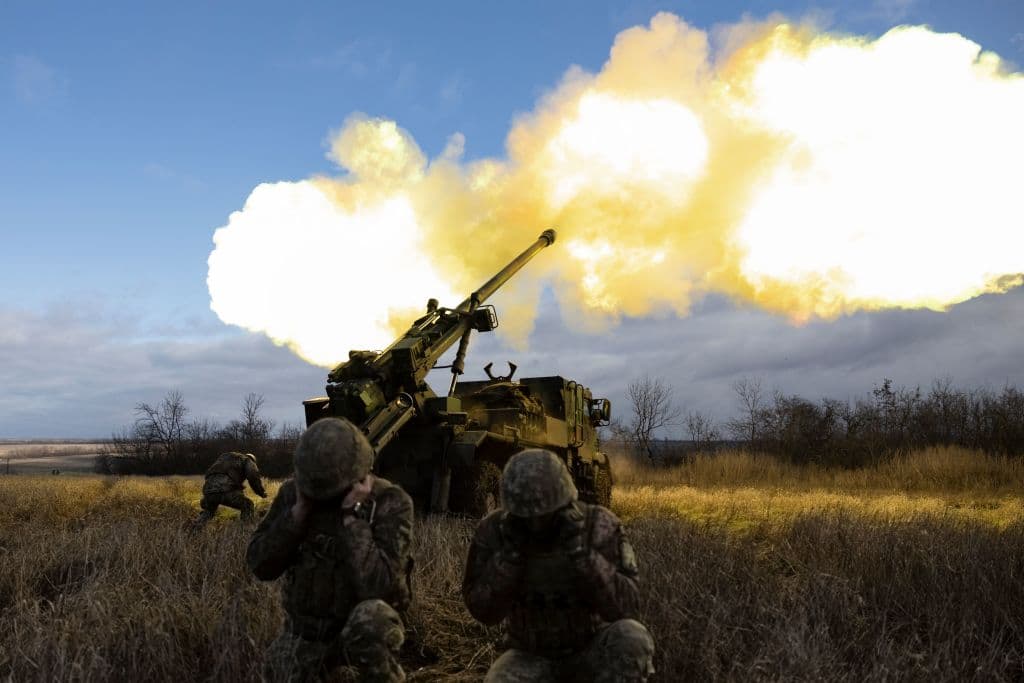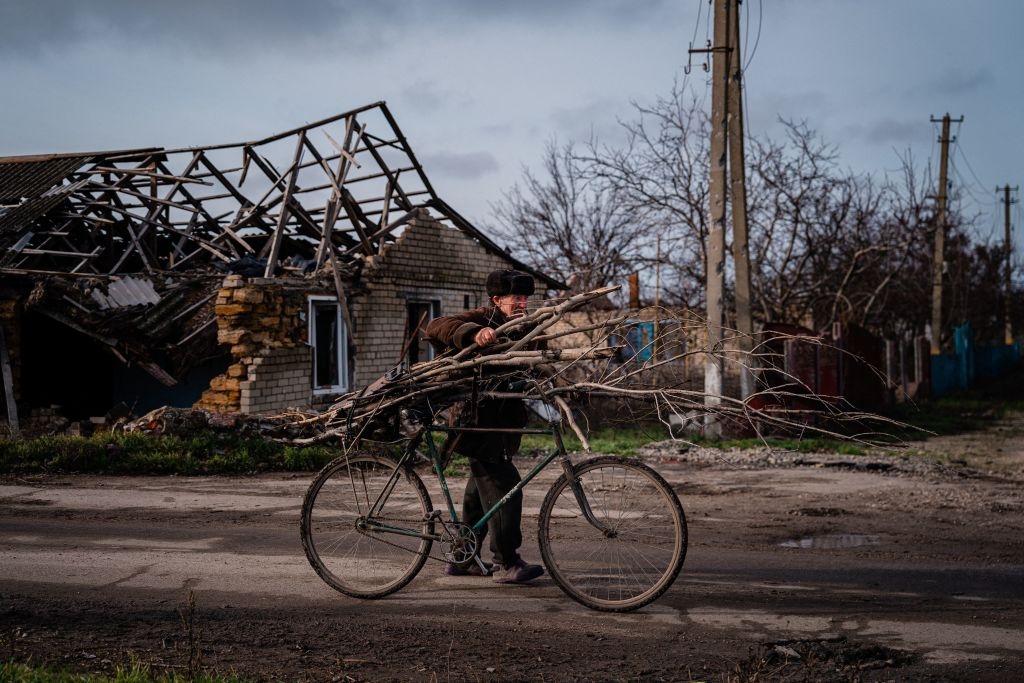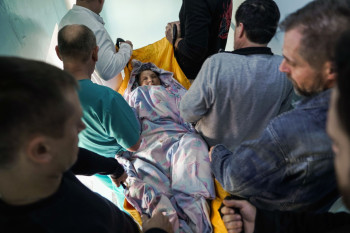Ukraine war latest: Moscow rules out peace unless ‘annexation’ recognized, Kyiv pledges to achieve ‘dream victory’

Key developments on Dec. 28:
- Kremlin: Peace possible only if Ukraine agrees to Russia's annexation of its regions
- Zelensky: Ukraine moving toward victory generations dreamt of
- French Defense Minister meets Reznikov in Kyiv, pledges further military support
- UK Defense Ministry: Russia strengthens defense near Kreminna, Luhansk Oblast
The Kremlin claimed on Dec. 28 that it would not consider a peace plan that excludes Russia’s “annexation” of four Ukrainian regions in the country’s east and south, turning down Kyiv’s proposal to end the war in Ukraine.
Kremlin spokesman Dmitry Peskov’s statement dashes any hope of Kyiv-designed peace formula, which Ukraine’s President Volodymyr Zelensky introduced during his November speech at the G20 summit and includes a complete Russian withdrawal and the return of all prisoners of war.
The Kremlin’s demand concerning four partially occupied Donetsk, Luhansk, Kherson, and Zaporizhzhia oblasts comes after Russia faced a string of humiliating defeats in eastern and southern Ukraine.
Despite losing swathes of its captured territories, the Kremlin claims to have illegally annexed four regions in September.
While Ukraine has not reacted to Peskov’s statement yet, Zelensky has reiterated that his country will not give up any territory to Russia. His Western allies have agreed to help Ukraine succeed on the battlefield by supplying their advanced weapons.
On Dec. 28, Zelensky delivered an annual address to Ukraine’s parliament, where he underscored that Russia will be held accountable for its alleged war crimes and is “sure the tribunal will work.”
“Ukraine is moving towards the victory that generations of our people have dreamed of,” Zelensky said during his 45-minute-long speech, where he also briefed on the country’s economy and difficult energy situation.
On the diplomatic front, French Defense Minister Sebastien Lecornu, who met with his Ukrainian counterpart Oleksii Reznikov in Kyiv, pledged further support for Ukraine’s military. He said on Dec. 28 that the support would include a $212 million fund for weapon purchases.
Raging battle in eastern Ukraine
On Dec. 28, Zelensky painted a severe humanitarian and front-line situation in the Donetsk Oblast city of Bakhmut, as a “terrible roar” of Russian artillery rages.
“There is no place (in Bakhmut) that is not covered with blood,” Zelensky, who visited the city before his Washington trip, said in a Telegram post.
Russian troops are desperately trying to capture Bakhmut because they apparently view it as “a very strong Ukrainian fortress” that needs to be “destroyed,” likely hoping to slash Ukrainians’ morale, Deputy Defense Minister Hanna Malyar said on television.
After five months of non-stop onslaught, the Russian military is facing “growing personnel and munition constraints” that could prevent it from maintaining a high-pace offensive in the Bakhmut area, the Institute for the Study of War (ISW) said in its Dec. 27 report.
To the north of Bakhmut, Russians appear to be strengthening their defense near Kreminna in Luhansk Oblast in recent days, likely due to “continued pressure from Ukrainian operations,” the U.K. Defense Ministry said on Dec. 28.
The ministry added that Russian troops “will likely prioritize holding the (defense) line” around the occupied town of Kreminna since the area is logistically crucial for them.
Kreminna serves as a gateway to two key cities in Luhansk Oblast – Sievierodonetsk and Lysychansk, Ukraine’s last strongholds in the largely occupied region.

Shellings, land mines
Yet another Russian shelling hit the village of Kizomys in the southern Kherson Oblast, wounding three civilians, including a 14-year-old child, according to President's Office Deputy Head Kyrylo Tymoshenko.
Kherson Oblast Governor Yaroslav Yanushevych reported on Dec. 28 that Russian troops had shelled the liberated parts of the region 50 times over the past day, wounding at least three civilians.
Meanwhile in the northeastern Kharkiv Oblast, a father and his seven-year-old son were hospitalized after they were wounded by land mines in a village near the city of Chuhuiv, Kharkiv Oblast Governor Oleh Syniehubov reported. While Ukrainian forces liberated Chuhuiv in March, abandoned explosives left behind by Russian troops are still a threat to civilians.
On the energy front, the state grid operator Ukrenergo said that the power deficit has gotten worse due to Russian shelling of the gas infrastructure in eastern Ukraine that led to shutdowns of “several” blocks of power plants. “Significant resources and time” are required to restore Ukraine’s damaged power infrastructure, it added.
Emergency blackouts continue in some parts of Kyiv and its outer region, energy giant DTEK said, as well as in other areas across Ukraine.
Earlier on Dec. 27, First Deputy Interior Minister Yevhen Yenin said on television that Russian attacks had damaged at least 702 critical infrastructure sites countrywide, which include gas pipelines, electrical substations, and bridges.










